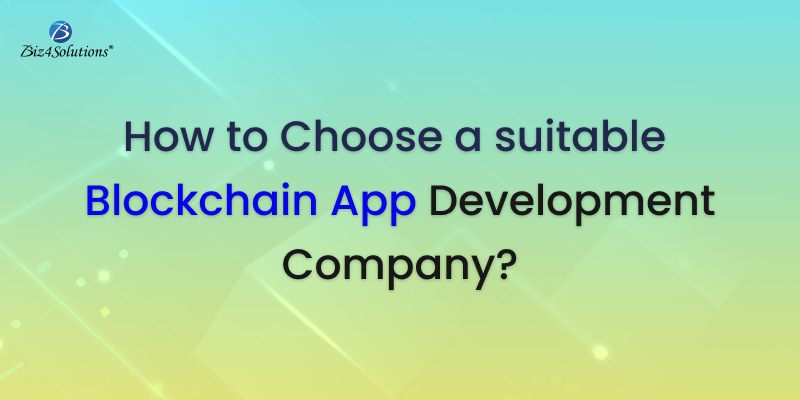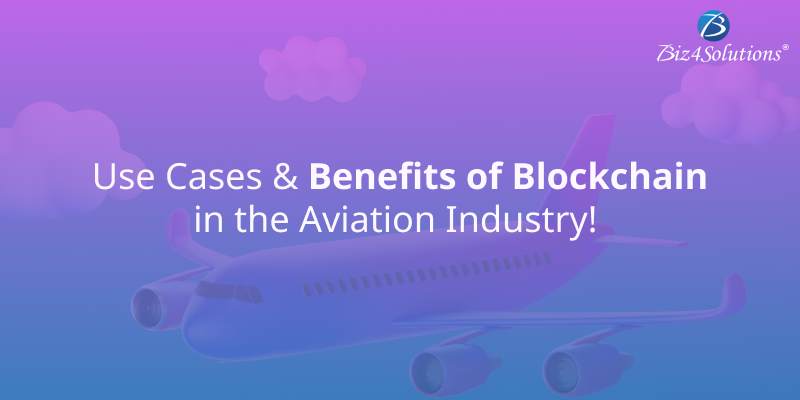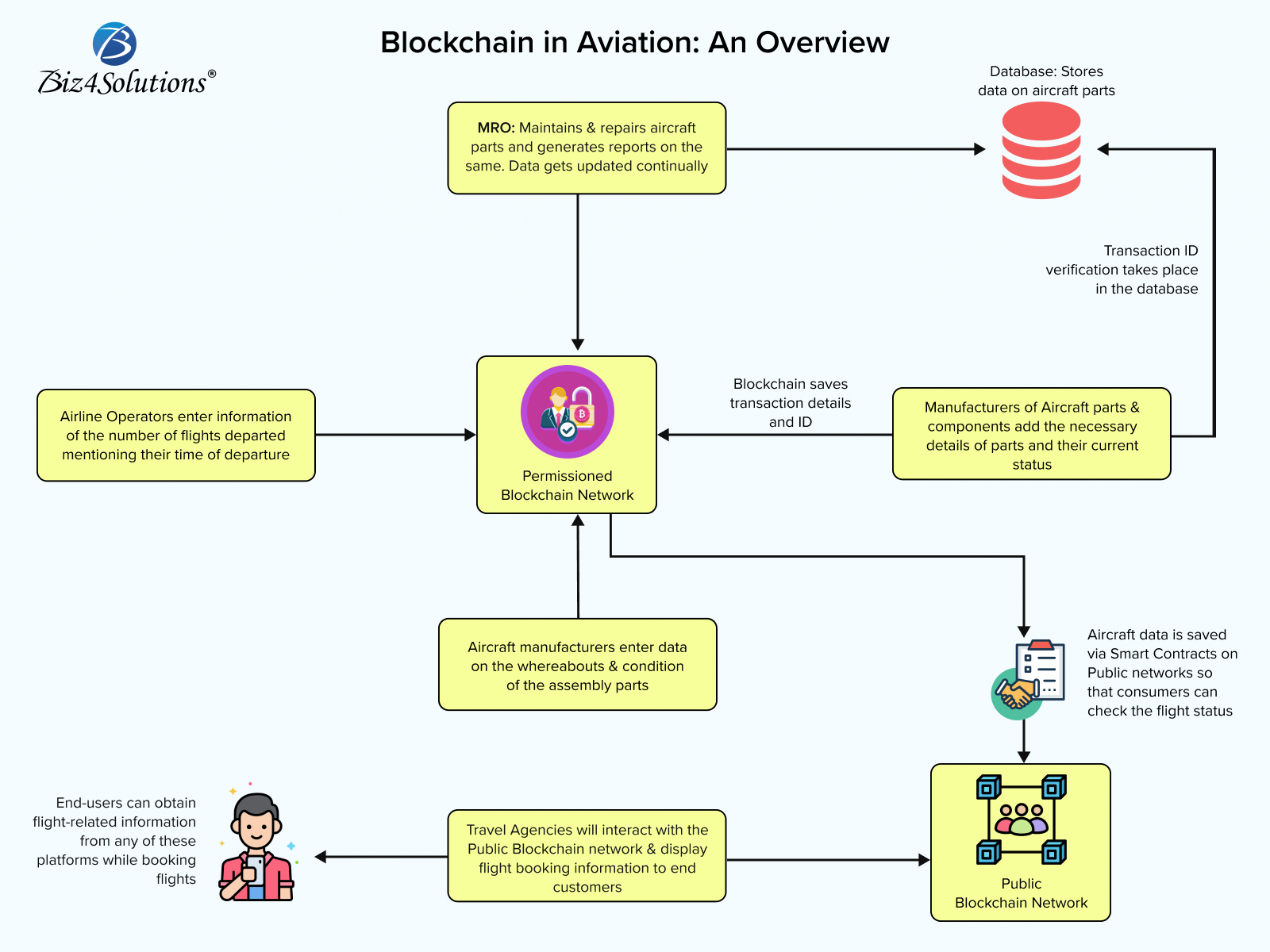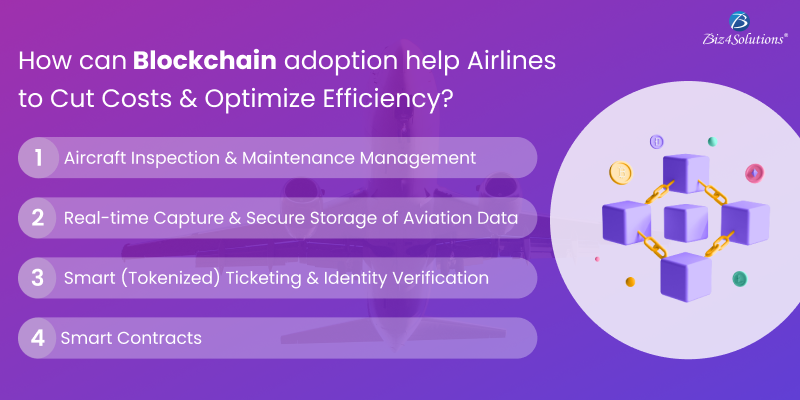Tips to Pick the most suitable Blockchain Development Company for your Upcoming Project?


Blockchain app development is gaining prominence and Blockchain business models have become the buzzword of modern times. Here are some amazing statistics on Blockchain implementation researched by the renowned online portal techjury.net:
- There were more than 81 million registered Blockchain wallets as of March 2022.
- The Blockchain market is predicted to generate a revenue of approximately 20 billion globally by the year 2024.
- Banks can minimize their infrastructure costs by 30% with Blockchain solutions.
- Blockchain implementation can help finance firms save up to $ 12 Billion per year.
- As per healthcare weekly.com, healthcare weekly.com 40% of healthcare executives consider Blockchain development as one of their top priorities.The above stats indicate the soaring popularity & immense scope of Blockchain app development. Needless to say, businesses across diverse domains are leveraging the potential of decentralization, immutability, transparency, and high-grade security offered by Blockchain solutions.However, Blockchain implementation is no cakewalk. Therefore, most businesses utilizing this disruptive technology are seeking assistance from professional Blockchain development services. But, picking a Blockchain development agency that suits you best is not an easy task either. Here are certain tips and factors to consider while choosing Blockchain services.
Checklist to Select Blockchain Development Services

Consultation by Blockchain Experts
Do you have an excellent idea for your Blockchain development project and can’t wait to get it implemented? Well, it’s not as easy as it sounds. Blockchain implementation is way more complex as compared to other technologies and one single mistake can spoil the objective of your project. And, owing to the amount of time and expenses involved in Blockchain app development projects, you can’t afford to make any mistakes. So, you need to validate the practicality, correctness, and effectiveness of your project idea before you dive in. Moreover, you must understand how a Blockchain solution works and how it can benefit your business. This will help you to form an actionable vision of Blockchain development and figure out whether your business needs a Blockchain solution. Furthermore, you need to clearly determine your Blockchain-based project’s vision beforehand; so that you can communicate your specific set of requirements to the Blockchain developers who are going to execute your project. These are the reasons why you need Blockchain consultation services from resources who are well-versed in Blockchain projects.Consultation from experts is not only beneficial in the ideation phase but also at every phase of the product development lifecycle. Hence, the Blockchain app development company you choose must provide consultation services through all project stages. If your technology partner simply executes your idea without validating or enhancing it, you might come across roadblocks during the later stages of the project. A professional Blockchain agency will provide you with a dedicated team of consultants. These consultants guide you through the right path and help you understand how Blockchain implementation will impact your business.- This is how the consultation process works. Blockchain experts discuss the project idea with clients at the very beginning of the project. They understand the project idea, your requirements, and the outcomes you expect from the envisaged Blockchain solution. Thereafter, consultants analyze the idea and its effectiveness and match it with your requirements. Then, they offer the right advice on the practical implementation of the envisioned project model and add their inputs on enhancing its productivity. They suggest an approach and a product development roadmap that best fits into your Blockchain solution requirement model. They also propose a productive strategy when any mid-project updates need to be implemented based on their client’s suggestions.
Choose Quality Over Cost
Settling for a low-cost Blockchain development vendor may not prove fruitful in the long run. Productive Blockchain app development requires a great deal of technical knowledge, expertise, innovation, and experience. Low-cost resources may lack these essential prerequisites and you are likely to face product-related issues. And, if you need to revamp the entire project, later on, it will be a costly affair. So always prioritize quality over cost.Technical Expertise, Necessary Skillsets, & Efficiency
Blockchain implementation requires sound knowledge and extensive experience to deliver productive outcomes. Costly mistakes are likely to happen if your Blockchain resources lack the necessary skillsets & technical expertise. So, it’s important to check your Blockchain service provider’s offerings.Research thoroughly to obtain information on the Blockchain agency’s approach, perspective, and the tech stacks they work with. Companies offering Blockchain development services should offer a dynamic team of talented Blockchain developers with multiple specialists like software developers, smart contract resources, etc. Generally speaking, Blockchain resources should have experience in working with programming languages such as Angular, Node.js, JavaScript, Solidity, etc., and tech stacks like IPFS, Hardhat, Truffle, Metamask, etc. Some of the most sought-after Blockchain use cases include smart contracts; DeFi, DAO, DApps, crypto wallet integration, cross-border payments, etc. You need to also check whether your Blockchain app development vendor follows the latest trends and adheres to standard practices.You can collect such information by visiting the company’s website and taking a look at their portfolio as well as the previously delivered projects. You can also go through their case studies, blogs, articles, and success stories to obtain insights. Do not forget to ask your technology partner about the coding standards and practices they follow. Ask them about the project management techniques, their way of handling mid-project changes, and the approach they would adopt to address crisis situations.Domain-specific Experience
These days, Blockchain implementation is not limited to finance and banking. It is becoming a game-changer for multiple industries like healthcare, real estate, supply chain, aviation, etc. So, it’s important to check whether the agency you are planning to hire for your project has a prior experience in Blockchain app development in your niche. Experienced teams will be well-versed in domain-specific requirements and can create intuitive and user-friendly interfaces. Domain-specific knowledge can be an additional advantage in shaping your project idea into a fruitful solution. Experienced Blockchain app development services have been in the market for a certain time and as such are aware of the market trends and best practices. Besides, they can handle complex developmental challenges and provide valuable suggestions regarding Blockchain development.Custom Blockchain App Development
Standard, pre-defined, or previously-structured Blockchain solutions are not always suitable to meet a business’s objectives or resolve pain areas. If the structure of a business is complex, it needs a customized approach. So, if your business falls under this category, choose a Blockchain app development vendor that will understand and analyze your specific requirements and propose a Blockchain solution that will fulfill your unique goals. It will be great if your technology partner can create a whitepaper for documenting the customized design specifications that are going to be implemented.Agile Methodology
Today, an agile development methodology is preferred over a fixed prototype model. Agility provides the much-needed scope for evolution, improvements, last-minute modifications as per ongoing market requirements, and rolling out post-launch updates to stay relevant. An agile model refers to the process of breaking the product development process into short sprints. Simply put, instead of developing & deploying the product in one go, it will be developed gradually following a step-by-step methodology.The best practice of Blockchain app development is developing an MVP (Minimum Viable Product) at first. An MVP helps you to validate the effectiveness of the product, identify the areas that can be improved on, and assess whether the product meets your objectives. Based on the aforementioned aspects and ongoing market trends, you decide on the add-ons and enhancements to be made in the upcoming sprints. This way, the end product keeps evolving as per the requirement and changing market demands. Hence, the Blockchain app development company you choose must support an agile product development process.Performance & Scalability
Performance and scalability are two key factors that decide the fate & scope for future growth of a Blockchain app solution after it goes live. And, your Blockchain development firm should adhere to these requirements. The number of users increases with time. As a result, the load and processing time also keeps increasing, thereby exhausting the system resources. So, every Blockchain solution must be designed to be scalable so that it can handle the increased load in the future.So, it’s advisable to convey the Blockchain agency you’ve hired to design scalable and performant solutions. Your development partner should employ a flexible programming language that can carry out parallel as well as non-parallel system operations. The system should be capable of maintaining the ideal level of responsiveness and speed.Dedicated Team of Blockchain Developers
The level of complexity in Blockchain app development projects is quite high and so the concept of shared teams is least likely to work. A team handling multiple projects at a time will find it difficult to focus on your project and have to be reminded about the project goals from time to time. Also, shared teams may encounter time constraints leading to overlooked requirements, inadequate product testing, missed deadlines, etc. Hence, before signing the project agreement; ensure that the Blockchain development firm will provide a team of developers, testers, and QAs entirely dedicated to your project.Pricing Models
Before finalizing the Blockchain development company, assess the pricing models offered by them. Check whether the pricing model you are looking for is available. In case of multiple pricing plans, pick the one that best suits your project development needs. Usually, Blockchain agencies offer two types of pricing plans – ‘Fixed’ pricing and ‘Variable’ pricing models. Some companies offer the ‘milestone’ pricing model as well.The ‘fixed-price’ model involves pre-decided costs without any extra expenses later on. This model is cost-effective and is a perfect pick if you have a tight budget and strict deadlines to meet. But here, you need to pre-define your scope correctly. This model is not a suitable option if you are looking for customization and high-end product functionalities.The ‘variable-price’ model involves hourly or daily rates and is likely to incur additional expenses during the development process. This model is costlier, but ensures quality and fulfills your end-product customization requirements. Also, a variable pricing model is recommended if the scope of the project is not clearly defined at the beginning and the product development requirements are likely to evolve with time.The ‘milestone’ pricing model is employed in long-term partnerships between the client and the vendor company. It involves adjustable budget frames; a separate cost estimation is defined for each milestone based on the need.Security Practices
Safety is crucial for any business and this is one of the key reasons for using Blockchain solutions. The Blockchain eco-system does provide security, but the implementation of an extra security layer is necessary for making the solutions tamper-proof. Every standard Blockchain app development company adopts security measures like two-factor authentication, safety filters, etc.Work Ethics
The work ethics of the Blockchain app development company should be impressive. Dedicated, committed, goal-oriented, and reliable teams can make a huge difference. You can get an idea of the work ethics of your chosen partner by conducting research on their previous client interactions. Some of the most desirable qualities include the ability to adhere to strict deadlines, offer complete product development transparency, keep the client updated about the project’s whereabouts from time to time, etc.Post-deployment Support
A Blockchain solution may face issues after it goes live even if it was deployed after extensive testing. So, Blockchain-based end products require post-launch technical support for resolving real-time bugs, making the necessary modifications as per the need, and so on. Live support ensures the smooth functioning of the end product and saves your brand’s reputation from being tarnished. So, remember to pick a Blockchain app development firm that will provide you with live technical support after the product launch.Final Thoughts:
I hope the aforementioned tips and strategies will help you to pick the best-suited Blockchain app development company for your next project. Once you’re done with shortlisting the Blockchain agencies as per your project’s requirement and their team’s app development experience; it’s time for the crucial project discussion phase. During this phase, be clear with the product’s vision, provide clarity about your goals, and convey your specific requirements. Remember to have a thorough discussion regarding the project’s budget to avoid surprise costs later on.




